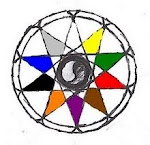The season brings such great delight to me
She calls my soul to joys left sleeping long
Since Autumn’s quiet reign began. My love
Had passed to other ‘spheres, to shine her touch,
Her smooth caress, upon those in her care.
For too far long had I waited on the
Asexual red Fall, in its rumpled
Flannel plaid and pumpkin-grooved face. My heart
Has been too long encaged by frigid hands
Of the hard-eyed old miser coot in chill
And stark
Upon the land. Virgin young Spring has come
All draped in flowered silk and patterned shawl
To smile and chuckle in polite amusement.
But when the sun goes down, her cold untouched
March shoulder turns on me and pimples with
Small geese my skin. My lady she is not.
My Summer-time girl has strawberry blonde
Long waist-length hair. Her skin is fair to tan,
Depending on how long she’s stayed. Her touch,
Like hot oil on my skin, flows, pushing beads
Of sweat so gently from my body, yes.
Her laugh does grab my hair and tousle it.
Her perfumes range from sea-salt spray to cut
Grass, funnel cake and boardwalk tar, fresh rain
In sunlight, asphalt wet and hot. Her eyes
Hold glist’ning rays of late-night sunsets on
Soft, gentle waves. She runs across green fields
And white sands, leaping from cotton ball to
White cloud in clear blue skies. The cold enrapture
Of chlorinated water or the slick
And prickly sea is her embrace. Her lips
Taste like iced lemonade and cotton candy,
Her breath contains a lingering hint of
Overly salted french fries, chocolate
Sauce on vanilla soft-serve, poolside pizza.
And when she dons her coal black gown and sneaks
Along the sky, horizon to horizon,
I can stay for such lengthy hours just
To let her voice run riv’lets down my face
Cascade over my body, ring true all
Through out the streets. I’ll jump as her soft hands
Just clap together and her rough, bare feet
Rumble away across the night, the wind
So fiercely pulling me into her raindance.
When fin’ly it’s time to sleep, we’ll retire
To the warm bedroom where we will lie nude,
And I will let her smooth skin heat my bare
Flesh as she lies atop me. And the gentle
Swells of my love’s soft, pillowy breasts will
Be where I rest my head and dream all night.
-D.M.D.M. 4-27-06

